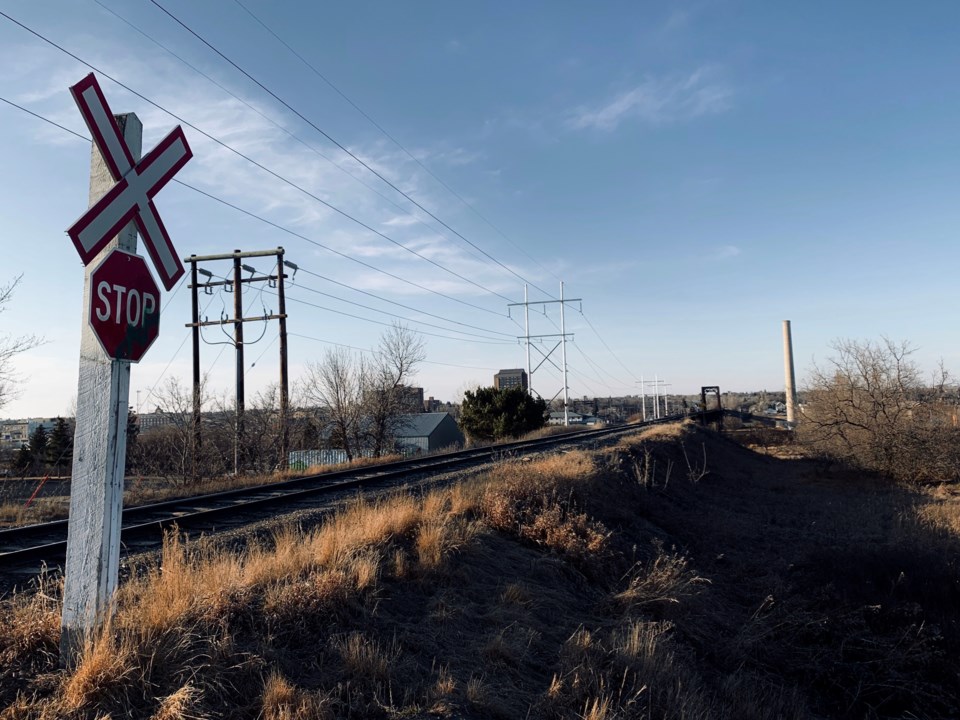Residents annoyed with train whistles will have to continue living with the inconvenience since eliminating the warnings could affect safety and add an extra $25 million to the city’s liability insurance.
City administration has spoken with Canadian National Railway (CNR) and Canadian Pacific Railway (CPR) about train whistle cessation in Moose Jaw. Municipal officials have particularly looked into eliminating train whistles at the CNR crossing on Thatcher Drive West and Iron Bridge Drive.
City council received three complaints about train whistles during the past three years, a report said. These complainants asked council to eliminate train whistles and implement no-idling zones at train crossings within city limits.
During the July 12 regular council meeting, city administration presented reasons why it would not be possible to implement train whistle cessation in Moose Jaw and documents about train accidents in Saskatchewan and Canada.
Council unanimously voted to receive and file the report, essentially leaving the current situation with train whistles as it is.
The respective transportation agencies for Canada and the United States mandate them to have train whistles at all public crossings since they are safety devices that alert motorists, pedestrians, trespassers and area construction crews about approaching trains.
“We are a rail town. We have 28 crossings in town,” Bevan Harlton, director of engineering services, said during the meeting. Neither CP nor CN recommends that Moose Jaw — or any community — invest time or money into designing and approving changes at these crossings since train whistles are about safety.
Transport Canada statistics show 175 crossing accidents in 2019 in Canada, including 29 crossing accidents — and four deaths — in Saskatchewan. Meanwhile, there are roughly 17,000 public crossing across the country, of which Saskatchewan has 3,546 crossings, the second-highest number in Canada.
Moose Jaw is the road authority for the 28 public railway crossings, although only six have flashing lights, bells, and gates. The municipality would be responsible for all costs to upgrade those crossings within 400 metres of the crossings.
Staff in the engineering department dug up a report from Lloydminster from 2018, which showed it would cost roughly $375,000 to upgrade each rail crossing, said Harlton. However, he understood that that community did not pursue that project.
With 22 rail crossings in Moose Jaw without lights, bells or gates, upgrading them all would likely cost $8.25 million.
With the number of crossings the city has, train whistles are for safety whether people like them are not, said Coun. Dawn Luhning. Moose Jaw is also the largest CP rail hub in Canada — if not North America — for certain products.
“That’s the city we live in,” she added.
Changing the safety around rail crossings would be expensive with liability costs, Coun. Doug Blanc pointed out. While trains blow their horns, it’s usually for a few seconds anyway.
Blanc talked to his son, who works for CN, and learned the only other community attempting to remove train whistles is Martensville. However, that municipality has attempted to do this for 10 years without success.
The residents who complained to city council three years ago had initially approached CN and CP with their concerns but never heard back, which is why they came to the city, said Coun. Crystal Froese. She didn’t think council would be successful in eliminating train whistles since this is a federal issue.
“We absolutely need train whistles in this city, especially in the middle of the night. We don’t know if someone is coming home at four in the morning (from work),” she added.
City administration agreed to contact those concerned residents and inform them of council’s decision.
The next regular council meeting is Monday, July 26.




